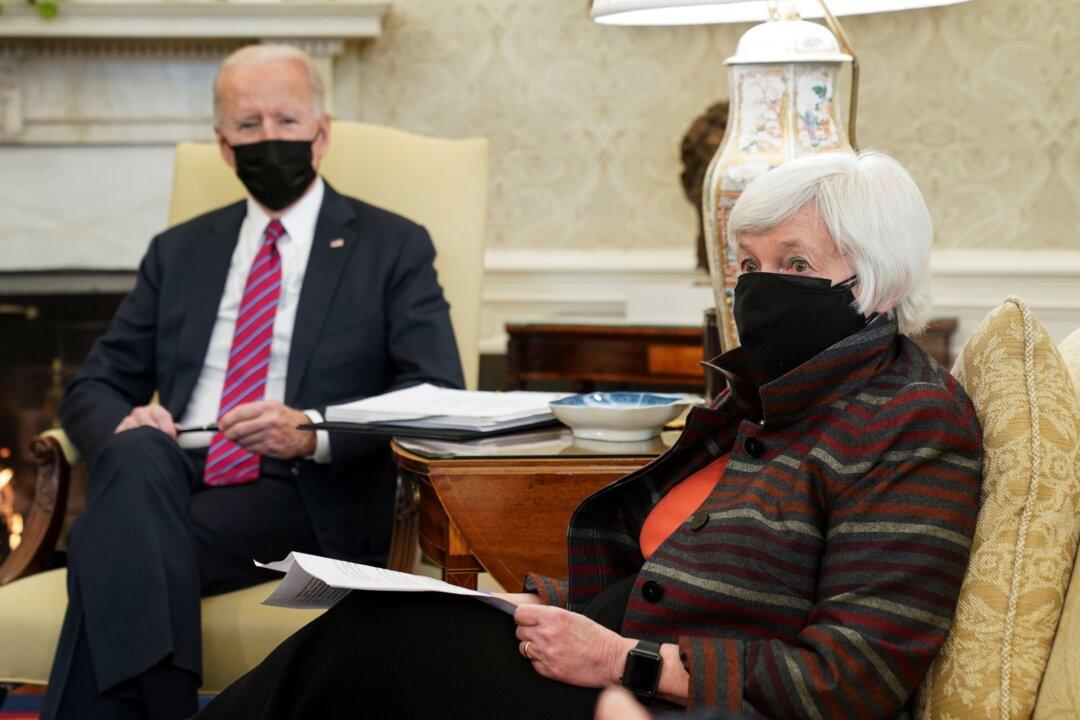Treasury Secretary Janet Yellen urged Congress on Aug. 9 to raise the debt ceiling through “regular order,” as Senate Democrats get ready to pass the $1.2 trillion bipartisan infrastructure bill this week and introduce their $3.5 trillion spending package.
However, neither measure addresses increasing the debt ceiling.





